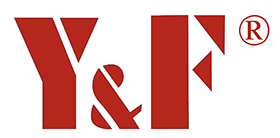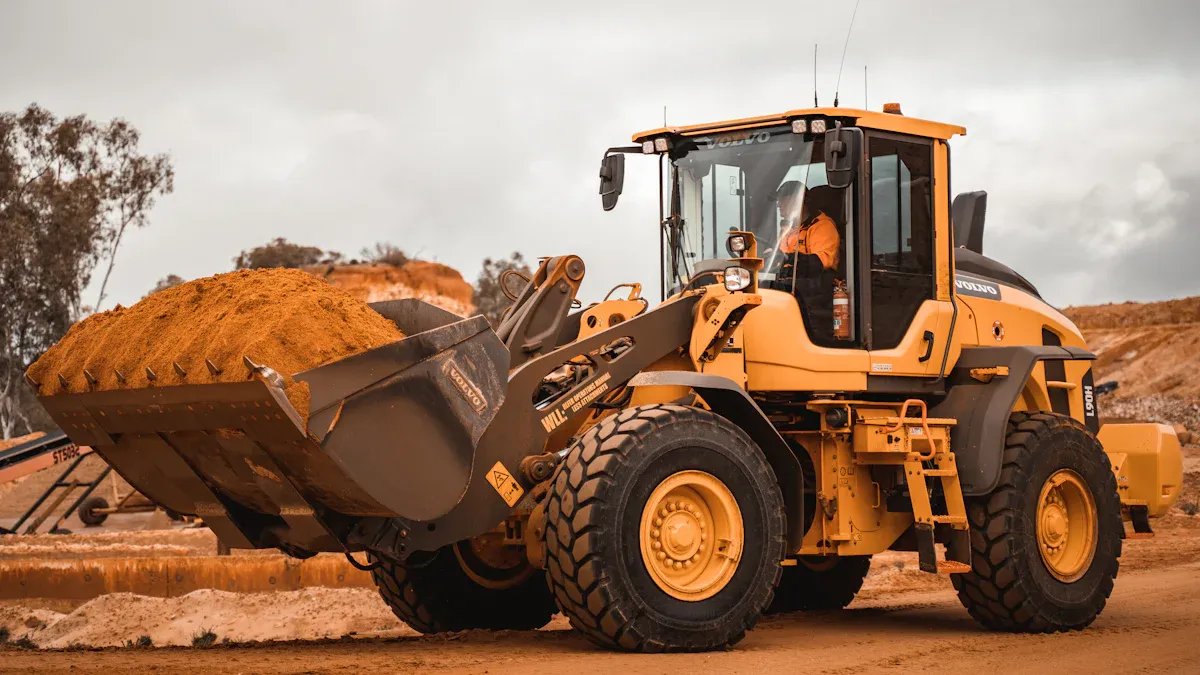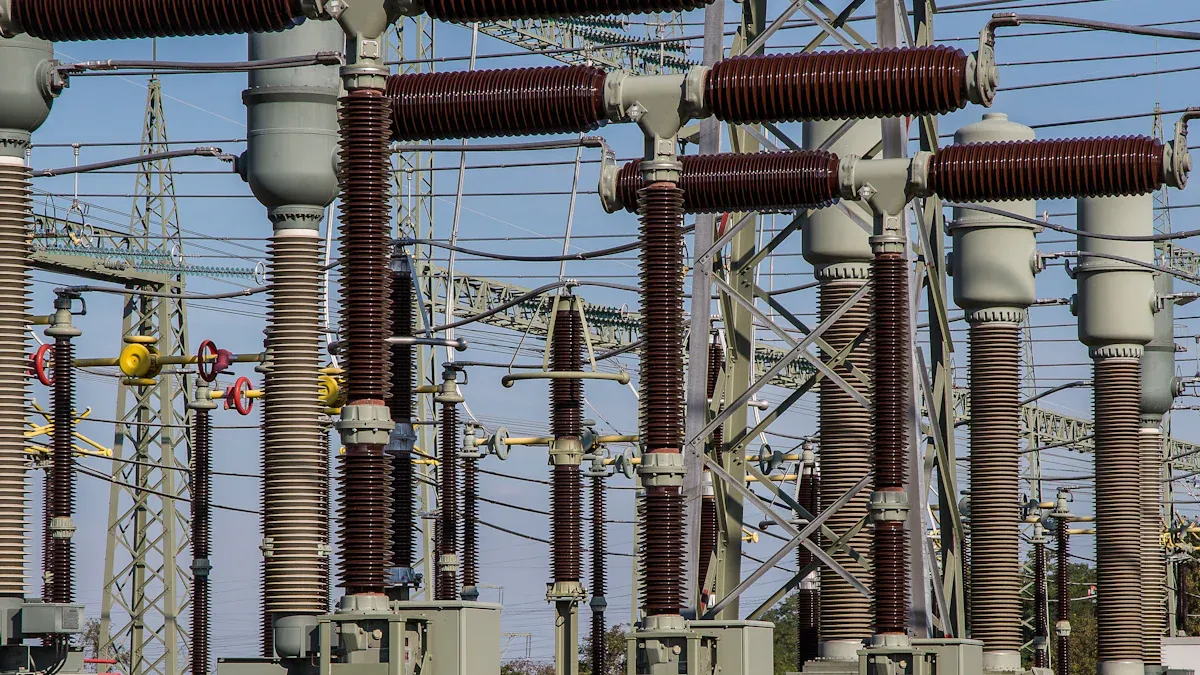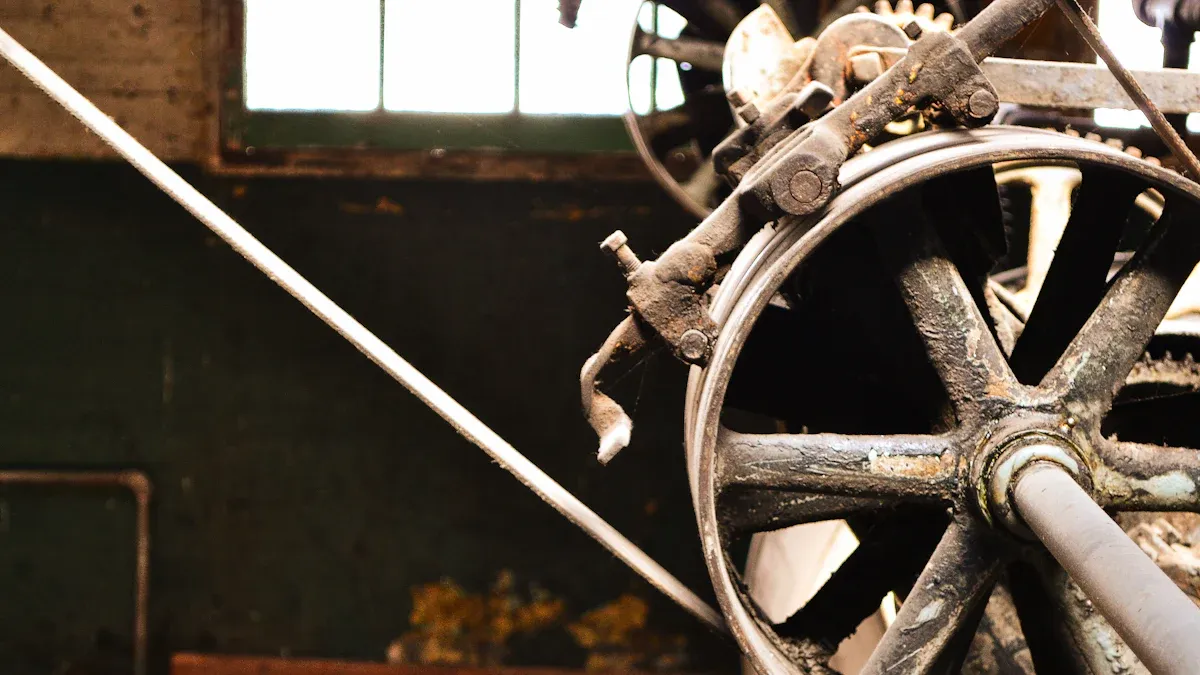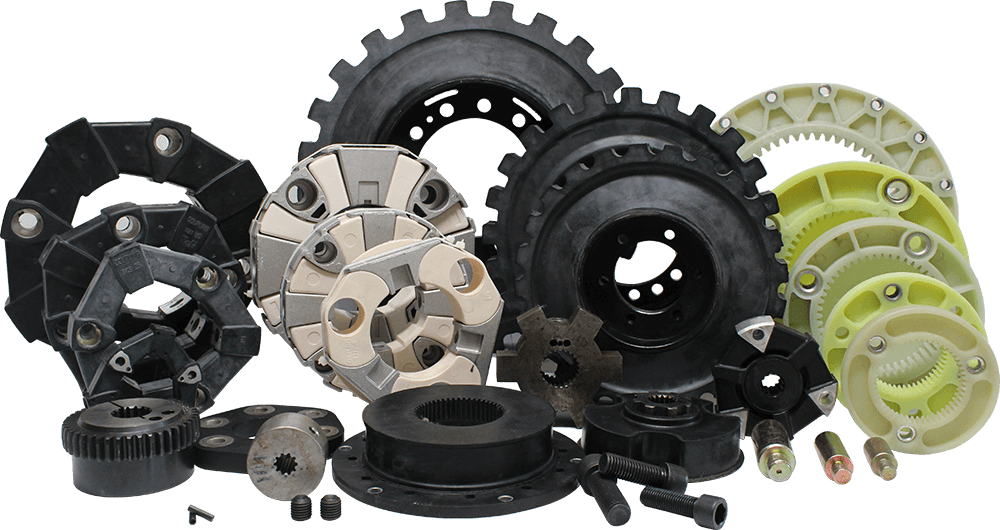
Center joint seals are very important in your hydraulic system. These seals stop fluid from leaking out. They help keep the pressure steady. They also block dirt and debris from getting inside important parts. When these seals stay strong, you get fewer leaks. Your equipment works better and more often. For example, liquid gasketing makes a tight seal. This saves money and makes the system work better. If a seal breaks, you might see lower efficiency. Sometimes, the whole system can stop working.
Key Takeaways
Center joint seals stop fluid from leaking. This helps your hydraulic system stay strong and work well.
Check seals often and change them if they are worn out. This stops big repairs and keeps your equipment working right.
Pick the best seal material for your system’s pressure and temperature. This gives you the best results.
It is important to install seals the right way. Follow each step so the seals last longer and work well.
Good seals lower friction, save energy, and help machines run smoothly.
Center Joint Seals Overview
Function in Hydraulic Systems
You find center joint seals in many types of hydraulic equipment. These seals help keep your system running smoothly. They sit at the heart of machines like excavators, loaders, and cranes. Their main job is to stop hydraulic fluid from leaking out. When you use your equipment, these seals keep the pressure steady and make sure the fluid stays where it should.
Tip: Good seals help your machine work longer and with fewer problems.
You can see different types of seals working together in your hydraulic system:
O-rings create tight seals at joints to stop leaks.
Backup rings support O-rings, especially when pressure gets high.
Rotary seals keep fluid inside even when parts spin or turn.
Lip seals work with moving parts to keep fluid in.
Wear rings or guide rings stop metal parts from rubbing together, which helps your seals last longer.
Gaskets seal flat surfaces, like where two parts meet.
Dust seals or wipers keep dirt and debris out, protecting the inside of your system.
These seals work as a team. They block leaks and keep out dirt, so your hydraulic system stays clean and strong.
Importance for Equipment
You rely on center joint seals to keep your equipment safe and efficient. Machines like bulldozers, forklifts, mining trucks, and agricultural machinery all use these seals. When a seal fails, you might see fluid leaks. This can lower the pressure in your system and make your machine less powerful. If leaks continue, your equipment may lose lifting strength or move less smoothly.
Fluid leaks can waste oil and make your machine less efficient.
Loss of pressure can make it hard to lift or move heavy loads.
Worn seals can let dirt in, which wears out moving parts faster.
If you take care of your center joint seals, your equipment will last longer and work better. Regular checks and good seals help you avoid costly repairs and downtime.
Impact on Hydraulic Performance

Pressure and Flow
You need strong pressure and steady flow for your hydraulic system to work well. Center joint seals help you keep both. When these seals fit tightly, they stop fluid from escaping. This keeps the pressure inside your system high. If you lose pressure, your machine might not lift or move as it should. You may notice slow movement or weak power.
Note: A good seal keeps the fluid moving where you want it. You get smooth and reliable action from your equipment.
If you use center joint seals that match your equipment, you protect the system from sudden drops in pressure. You also avoid problems with flow. Your machine will respond quickly and work with full strength.
Leak Prevention
Leaks can cause big problems in hydraulic systems. Center joint seals act as barriers. They stop oil and fluid from leaking out. When you prevent leaks, you save money on fluid and avoid messy cleanups. You also keep your equipment safe from damage.
Leaks can lower pressure.
Leaks can waste oil.
Leaks can let dirt inside.
If you see oil on the ground or notice drops in fluid levels, you might have a seal problem. You should check your center joint seals often. Replace them if you see cracks or wear. This simple step helps you avoid bigger repairs later.
System Efficiency
Your hydraulic system works best when every part does its job. Center joint seals play a key role in this. When seals wear out, friction inside the system increases. Your machine needs more energy to do the same work. This means higher fuel costs and more strain on the engine.
A study shows that seal performance links directly to system efficiency. If you tighten and assemble seals correctly, you lose less axial force and reduce friction. This keeps your system running smoothly. When seals degrade, you get more leaks and more friction. Your machine uses more energy and works less efficiently.
Seal Condition | Energy Use | System Efficiency |
|---|---|---|
New and Tight | Low | High |
Worn or Damaged | High | Low |
You can boost efficiency by choosing quality center joint seals and installing them with care. Regular checks and proper assembly help you avoid energy loss. If you want reliable seals, you can look for suppliers like YNF Rubber. They offer products that help you keep your system strong.
Tip: Good seals mean less energy wasted and more work done.
Common Issues with Center Joint Seals
Causes of Failure
You might notice that center joint seals can fail for several reasons. Here are some of the most common causes:
Hardening: High temperatures can make seals stiff. When this happens, cracks form and the seal loses its stretch.
Wear: If your system does not have enough lubrication or faces too much side pressure, the seal surface can wear down quickly.
Fracturing: Using low-quality materials or exposing seals to too much pressure can cause them to crack or split.
Scarring: Dirt or mistakes during installation can scratch or cut the seal, making it weak.
Improper installation often leads to leaks and equipment problems. If you place an o-ring incorrectly, it may leak right away. This can stop your machine from working and cost you time and money. Contamination, like dirt or metal shavings, can also damage seals. These issues not only cause leaks but can also create safety risks, especially if your system handles dangerous fluids.
Symptoms and Effects
When a center joint seal starts to fail, you will see clear signs. Watch for these symptoms:
Oil or fluid leaks around the joint
Drops in hydraulic pressure
Slower or weaker machine movements
Strange noises from the hydraulic system
Tip: If you spot oil on the ground or notice your machine losing power, check your seals right away.
Seal failures can lower your system’s performance. Leaks reduce pressure, so your equipment cannot lift or move as much. If dirt gets inside, it can wear out other parts faster. Over time, small leaks can lead to bigger problems, like total system failure or expensive repairs. Regular checks help you catch these issues early and keep your equipment running strong.
Maintenance and Best Practices
Selection Tips
Picking the right center joint seal is important. First, look at how much pressure your system uses. Check the temperature it will face. Think about what kind of fluid is in your system. Notice how fast the parts move. Make sure there is enough space for the seal.
Fluorocarbon (FKM) works well in hot places.
Nitrile (NBR) is good for medium heat and oil fluids.
PTFE with glass or bronze fillers is strong in tough spots.
EPDM is best with glycol-based fluids.
You should also think about how flexible the seal is. Check if it sticks well and lasts a long time. Polyurethane sealants bend easily and fight off chemicals and bad weather. They last longer and keep your system safe. If you want good seals, YNF Rubber has what you need.
Feature | Benefit |
|---|---|
Flexibility | Bends without breaking |
Adhesion | Stays stuck even when things get rough |
Durability | Fights off chemicals and weather for longer |
Installation
Putting in seals the right way helps them last longer. Always get ready before you start. Pick the right size, type, and material for your seal. Clean every part and look for any damage. Use the right tools and do not push too hard.
Clean and check all surfaces first.
Put oil on O-rings and check lip seal direction.
Use heat or put seals in steps if they are tricky.
Avoid mistakes like wrong grooves or dirt.
If you do not install seals right, they can break early. If the seal is not in place, it might leak or snap. Go slow and follow each step to do it right.
Inspection and Care
Checking your seals often keeps your system working well. Look for cracks, leaks, or worn spots. Change bad seals before they cause big trouble. Good seals mean fewer leaks and less chance of things breaking.
Checking often keeps machines running well.
Early checks help you find problems before they grow.
Safe machines mean fewer dangers for everyone.
YNF Rubber makes strong seals that are easy to care for. When you look after your seals, your machines work better and last longer.
There is a clear connection between seal condition and system performance. Good seals keep pressure high and stop leaks. Research shows less friction and tight seals help machines work well and last longer.
Seal material and surface affect friction and wear.
Checking and changing seals often stops big problems.
Practice | Benefit |
|---|---|
Correct installation | Fewer leaks and breakdowns |
High-quality components | Longer system lifespan |
Tools like wear sensors help you plan when to fix things. If you pick strong seals from YNF Rubber and take care of them, you save money and keep your equipment working for many years.
FAQ
What happens if you ignore a leaking center joint seal?
Ignoring a leak can lower system pressure. Your machine may lose power or move slowly. Leaks can also let dirt inside, which damages parts. You may face bigger repairs later.
How often should you check center joint seals?
You should check seals every time you do routine maintenance. Look for leaks, cracks, or worn spots. Early checks help you catch problems before they grow.
Can you replace center joint seals yourself?
You can replace seals if you have the right tools and follow the manual. Clean all parts and use care during installation. If you feel unsure, ask a professional for help.
What materials work best for center joint seals?
Materials like Nitrile (NBR), Fluorocarbon (FKM), and PTFE work well. Choose based on your system’s pressure, temperature, and fluid type. YNF Rubber offers quality seals for many needs.
Where can you buy reliable center joint seals?
You can buy strong and durable center joint seals from YNF Rubber. They offer many types and sizes to fit your equipment. Their products help you keep your hydraulic system running well.
